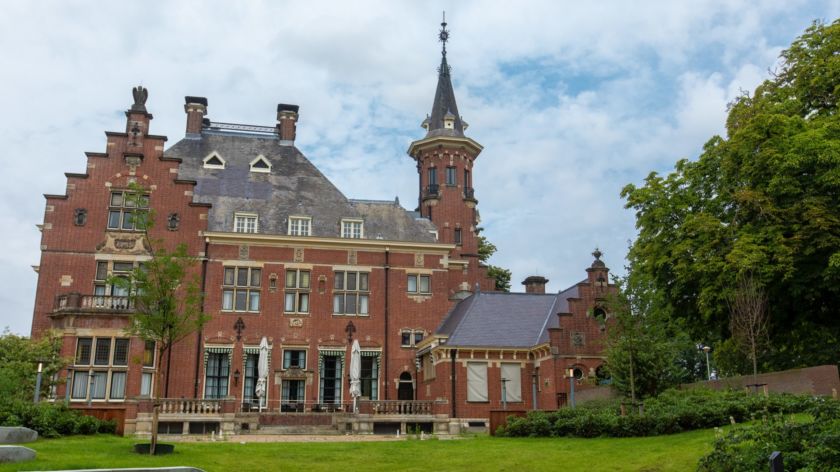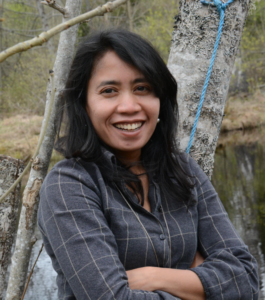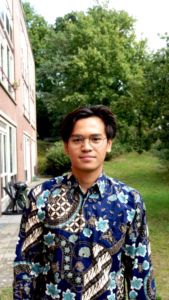Indonesian Student Association: ‘Use the Beel chamber to discuss the Dutch violence in Indonesia’
-
 Huize Heyendael. Photo: Dick van Aalst
Huize Heyendael. Photo: Dick van Aalst
Radboud University must ask itself if they want to continue honouring former professor Louis Beel with a portrait and a conference room bearing his name, according to members of the Indonesian student association in Nijmegen. ‘Beel was bad news for Indonesia.’
Louis Beel was prime minister from 1946 to 1948, and in that capacity, he was one of the few people ultimately accountable for the extreme violence committed by the Dutch in Indonesia during the latter’s fight for independence. He was the highest authority of the Dutch government in Jakarta during what has for a long time been referred to as the ‘second police action.’ Shortly after his governing period he became professor of Administrative Law at the Catholic University Nijmegen.
Within the university Beel is still being honoured by his portrait in the Grotius building and a bearing his name in House Heyendaal. Klaas Landsman, professor in Mathematical Physics, has called for a new name for the room and the removal of the portrait.
Moral Viewpoint
Former Radboud employee Yus Broersma is originally from Indonesia, and she agrees with Landman’s argument. ‘Beel was bad news for Indonesia. He does not deserve to be commemorated like this. We don’t have a complete picture of the kind of person he was; the only thing we remember are his accomplishments. Some people will argue that you shouldn’t look at the violence from back then with the moral viewpoint of today, but the violence was considered morally wrong back then as well; it just wasn’t discussed.’
‘Perhaps the university can enter a discussion with the Indonesian community on campus’
Broersma worked with NOSTER, the Dutch Research School for Theology and Religious Studies, until last January. She has also been involved with the Indonesian student association Perhimpunan Pelajar Indonesia (PPI) in Nijmegen for years now.
She had already been working on campus for some time when she saw the name Louis Beel during a faculty dinner in House Heyendaal. ‘This was in 2018. I was stunned and asked the dean why the room was named after Beel, but he didn’t know. It wasn’t until later that I found out that Beel had been a prominent figure at the university.’

Beel is not very well known within the PPI, according to Broersma. This is confirmed by Ikra Wiratama Hendra, BA student in neurobiology and former chair of PPI Nijmegen. ‘We know General Spoor, but I can honestly say that I hadn’t heard the name Beel before. And if I don’t know him, there must be plenty of other people who don’t know anything about him either. It is too bad that few people are talking about it. Perhaps the university can create a discussion with the Indonesian community on campus’
Wiramata Hendra can understand why there has been little to-do about the matter so far. ‘That may be because the people who suffered under Beel’s policies don’t have a major presence in the Netherlands. It would be a much larger issue if the Dutch embassy in Indonesia displayed a statue of him or Jan Pieterszoon Coen.’
Study less prevalent in Indonesia
The results of the Dutch study into extreme violence by Dutch military personnel in Indonesia between 1945 and 1950 made quite a few waves last week. The researchers from the NIOD, NIMH and the KITLV concluded that Dutch soldiers routinely used extreme violence against the Republic of Indonesia, and that the Dutch government as well as the military leadership ‘intentionally tolerated’ these acts. One of the leaders of the study, Frank van Vree, spoke of war crimes on a broadcast of the Radio 1 show OVT.
According to Wiramata Hendra, there has not yet been a lot of discussion within the PPI on the recent study on Dutch violence in Indonesia. ‘It has not been talked about a lot, perhaps because some of us don’t feel an emotional connection. We are more concerned with discussions going on in Indonesia, although we obviously also keep up with local developments.’
Broersma adds ‘Indonesian people prefer to look ahead. We already knew that horrible things happened in the past. And now the Dutch media expect an Indonesian response to the study, as if to confirm that it was a good study. This seems a little bit arrogant. However, I do think that the renewed attention in the Netherlands for these historic events is a good thing.’
Broersma notes that influential people in the Netherlands are often commemorated in public spaces. ‘From an Indonesian point of view, it is a bit odd to erect statues for people; this is usually done for divine figures. Why would you immortalise someone who did a tremendous amount of damage, such as Coen, Van Heutsz or Beel?’

Survey
Those statues are more appropriate in a museum, according to Broersma. ‘That allows you to tell the whole story. This cannot be done by just putting a sign next to it, because as long as someone’s name or image graces the public sphere, it reflects societal admiration for that person. We need to think carefully about who we want to honour in that manner.’ Broersma calls for a survey among students and university employees to consider what should be done with the portrait and the Beel chamber.
Wiramata Hendra did not want to express his opinion on the matter. ‘I think we collectively need to form an opinion. It would be a powerful signal if we could use the Beel chamber for a discussion with the Executive Board on the violence in Indonesia. The controversial decision to name that chamber after Beel can then be used to generate attention for the historical events. To me, that seems like a better solution than just renaming the room after a different professor.’



